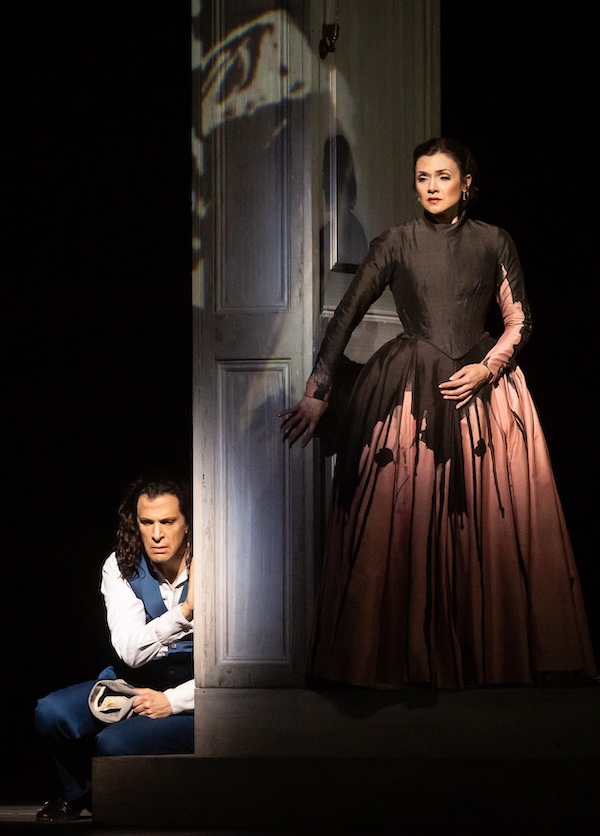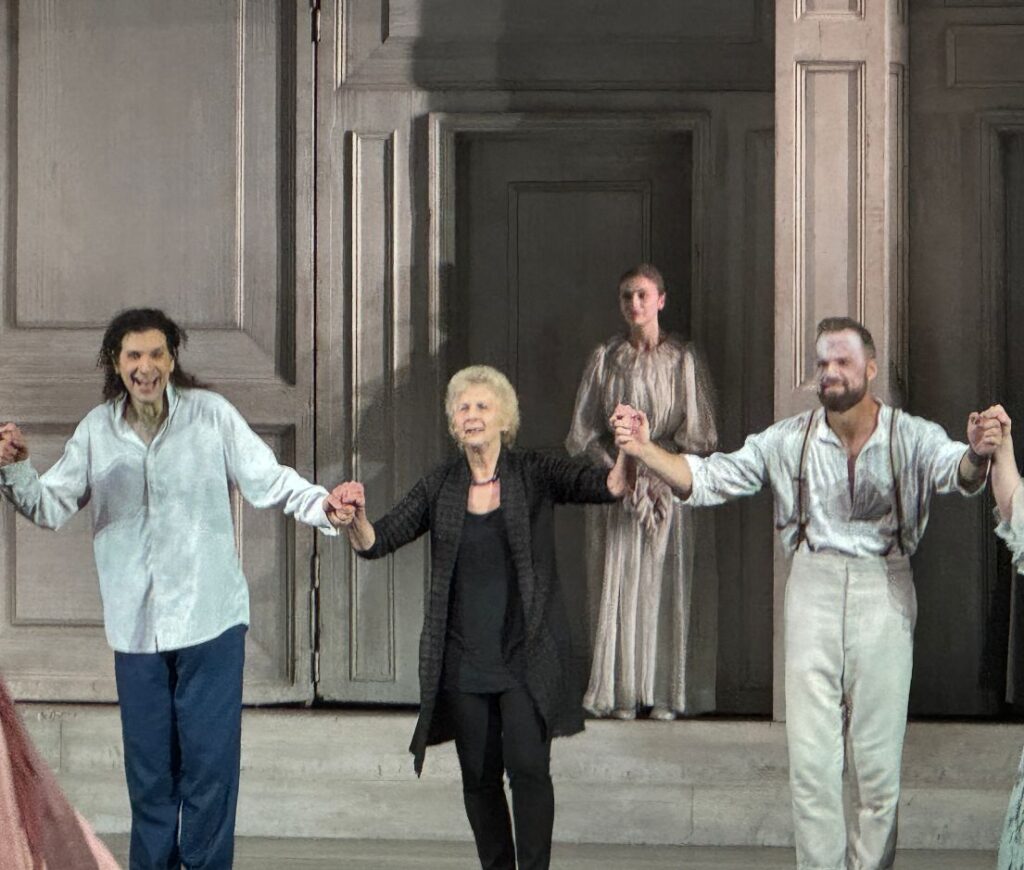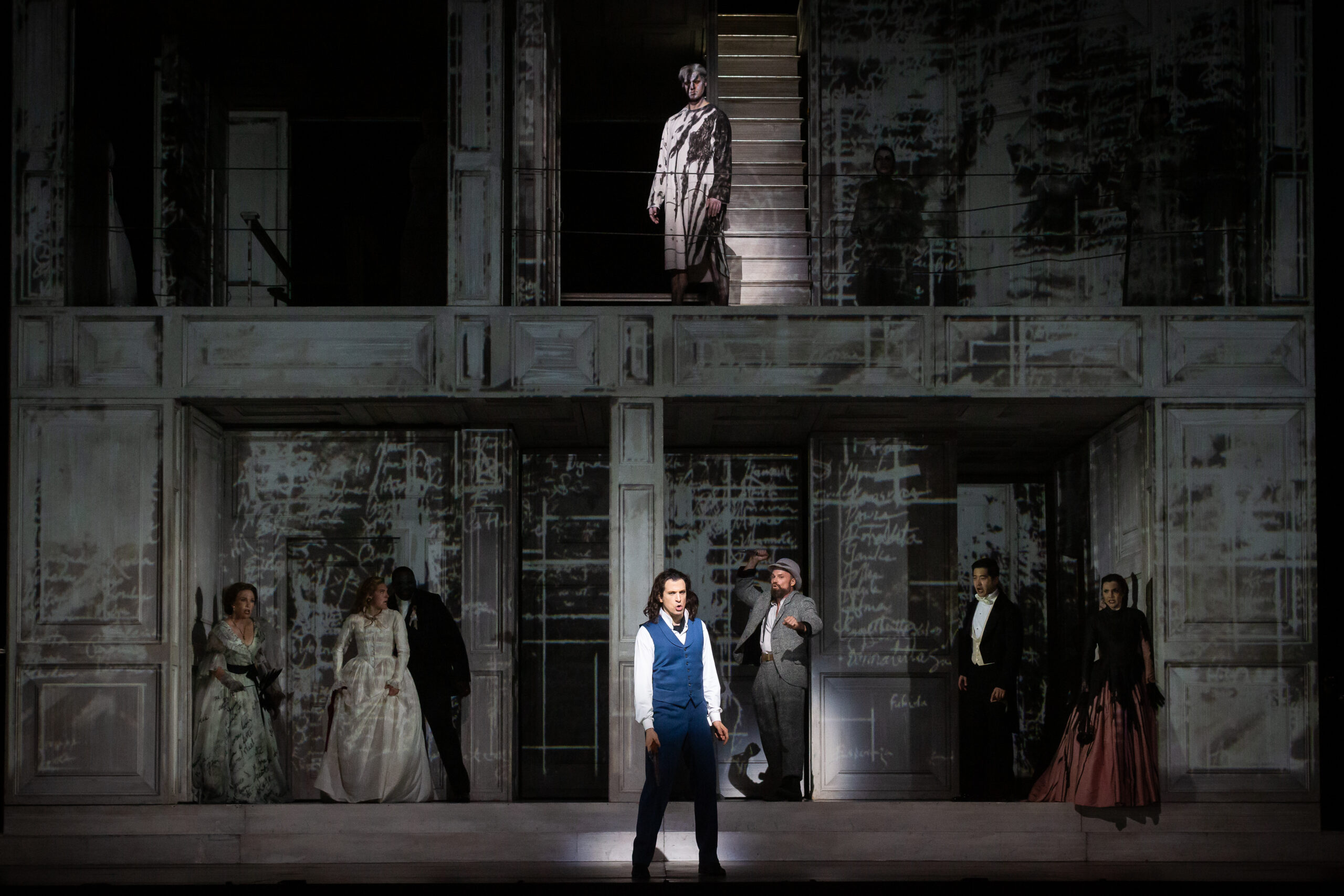Mozart’s mature opera Don Giovanni has been a fan favourite since it premiered in 1787. The old warhorse is once again trotting on the stage of Houston Grand Opera, which last staged it in 2019.
Don Giovanni is the ultimate gigolo: he lives to seduce women. Only when confronted with a power beyond the grave does he face the import of his actions. This is ultimately a story of love and morality. But what are those two concepts, and how do they interact? For that, I turn to a philosophy of science professor at Florida State University.
Michael Ruse writes that “Morality is a biological adaptation no less than are hands and feet and teeth…I appreciate that when somebody says ‘Love thy neighbour as thyself,’ they think they’re referring above and beyond themselves…Neverthless, such reference is truly without foundation. Morality is just an aid to survival and reproduction, and any deeper meaning is illusory.”
Don Giovanni, played here with moral abandon by Luca Pisaroni, is certainly in love with himself. He rather takes the ‘love thy neighbour’ injunction to its logical (or illogical) conclusion by trying to love every woman he encounters. At that conclusion he encounters nihilism, which is where Don Giovanni lives his life, quite literally right on the edge of the abyss where he comes face-to-face with the ghost of the man he kills five minutes into the opera. (In this production that role of Il Commendatore is played by Patrick Guetti, whose bass voice disturbs the soul as it literally shakes the walls of the opera. It resonates all the way to Hell itself, Don Giovanni’s new home). If anyone in opera set out to prove that morality has no deep meaning, it is Don Giovanni, but since Mozart does not embrace the atheistic philosophy of Professor Ruse, he shows in the dramatic ending of this opera that nihilism comes with a price.
Station in life for Don Giovanni is of no consequence: it can be a lady or a serving maid. A key female role in the opera is that of Donna Anna (played by Andriana Chuchman). In concert with the original director Kasper Holten, Chuchman decided to play her introductory line with intimacy, signalling to the audience that the affair with Don Giovanni was consensual (many productions take the approach that Don Giovanni forced himself on her). What follows in the opera is thus different, as it is Donna Anna who expresses emotional guilt at the death of her father, Il Commendatore. (photo shows Don Giovanni with Donna Anna)

The list of his conquests is long, and we see their hundreds of names displayed as video projections on the set, which is a two-level rotating building. Meant to evoke a large 18th-century villa, I found this constricted set to be quite innovative, as it served to concentrate most of the action (both mental and physical) within its walls.
Mozart wrote this as a serious comedy. Much of the comedic aspect is expressed by Don Giovanni’s hapless sidekick, Leporello, played by Ryan McKinny (both McKinney and Pisaroni are bass-baritones; this is one of the few operas where a tenor does not have the lead role). In a pre-talk, the audience was told that “the experience of Don Giovanni for you is uneasily comic, because we are asked to laugh at certain human characteristics that aren’t in themselves very funny at all.”
I agree with a technical review of this production, written by Steven Brown, that the pacing of the orchestra by Dame Jane Glover was relentless. A bit more pacing would have allowed the singers to avoid the occasional choppy and breathless passages.
To quote (from another context) the famed French author Pascal Quignard, the anxiety attack Don Giovanni suffers as the ghost of Il Commendatore pronounces his doom, “is an effervescence so violent it no longer permits the senses to clearly perceive what ordinarily falls within their grasp and which inverts and overturns everything before collapsing into an extreme powerlessness and a death anticipated, though premature.” In the last few moments, as Fate is pronounced in Guetti’s bass voice, the heart itself feels as constricted as what the eye beholds on stage. Anyone who has a heart condition would be well advised to bring their cardiac specialist to this dangerously gripping performance at Houston Grand Opera.
Don Giovanni is being performed at Houston Grand Opera on May 1 and May 3, 2024. This revival of the Holten version is directed by Greg Eldridge.
Lead image: The ghost of Il Commendatore looms over Don Giovanni. Photo by Lynn Lane.
Image of Chuchman (right) and Pisaroni (left) is by Lynn Lane.
Curtain call photo (below) shows Pisaroni (l) and McKinny (r). At centre is Dame Jane Glover. Photo by C Cunningham
For interviews with Pisaroni and Chuchman, visit these pages on the HGO site:
https://www.houstongrandopera.org/backstage-pass/discovering-don-giovanni
Sasha Cooke (Donna Elvira in this production) also appeared in The Wreckers at HGO, which I reviewed in 2022:
Other principal singers in this striking production, who all performed superbly, are Kang Wang (tenor), Erika Baikoff (soprano) and Norman Garrett (baritone)

